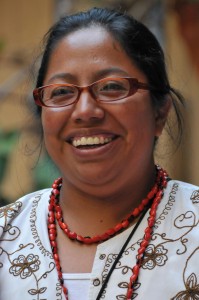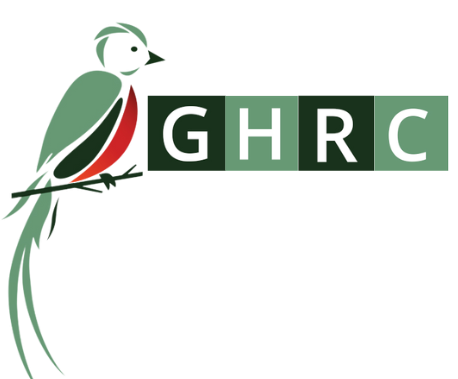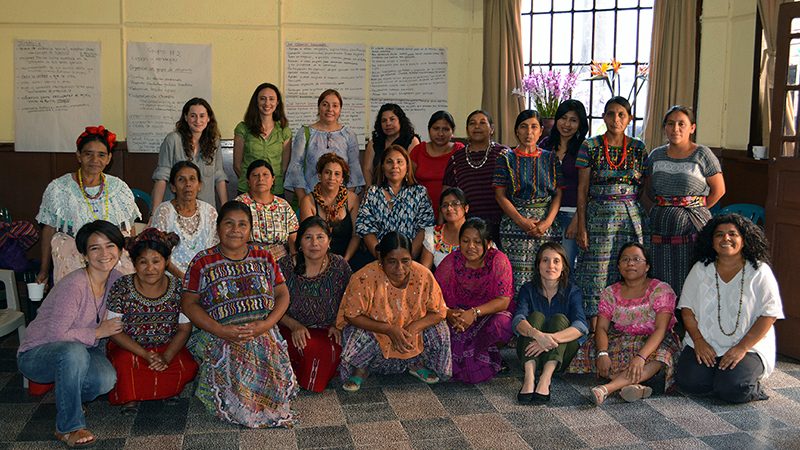GHRC Presents: The Siege on Indigenous Women
 Lorena Cabnal on the Protection of Body and Land
Lorena Cabnal on the Protection of Body and Land
Schedule of Events:
November 18 at 7:00 pm: Houston, Texas
[Maryknoll House, 230 Rice Blvd, Houston, TX 77005]
November 19 at 6:00 pm: Houston, Texas
[Rice University Ley Student Center, 6100 Main Street, Houston, TX 77005]
November 20 at 7:00 pm: Dallas, Texas
Southern Methodist University, Prothro Hall Room 106, 5901 Bishop Blvd., University Park, TX 75205]
November 21 at 5:00 pm: Austin, Texas
[University of Texas-Austin, Benson Conference Room #1.208, 2300 Red River Street, Austin, TX 78712]
November 23 from 6:30 p.m.-7:45 pm: Fort Benning, Georgia
School of the Americas Watch Vigil Workshop
[Fort Benning, GA (near Columbus)]
November 24 @ 10 am (approximately): Fort Benning, Georgia
School of the Americas Watch Vigil Stage
[Fort Benning, GA (near Columbus)]
From November 18-22, GHRC will accompany Lorena Cabnal on a speaking tour through Texas and Georgia that culminates at the School of the Americas Watch Vigil in Fort Benning, Georgia from the 23rd through the 24th. Lorena Cabnal is an indigenous Xinka woman, community feminist, grassroots educator, and mother. After earning her degree in Community Social Psychology, she co-founded the Association of Indigenous Women of Santa María Xalapán (AMISMAXAJ) in 2003.
AMISMAXAJ is a group of rural Xinka women, organized in the mountain community of Xalapán in Eastern Guatemala. Its members range from young girls to grandmothers, and are mostly farmers, students, and homemakers. The organization was founded with the goal of raising awareness of individuals’ rights and changing the conditions of poverty, violence against women, racism, and discrimination that plagued their community.
Through AMISMAXAJ, Lorena has worked towards the recognition and revitalization of the almost-extinct ethnic identity of the Xinka people and the recovery of their ancestral lands. She has also been active in leading the struggle against mining in her community, a movement which AMISMAXAJ pioneered in 2008. AMISMAXAJ’s contributions to the global feminist movement have centered on the concept of recovery and defense of the body and land as sacred territories, which connects the defense of women’s bodies to the pursuit of liberation, joy and fulfillment within a society dignified in its connection with nature. The strengths of the organization stem from its defense of life and fight against neo-liberalism and ancestral patriarchy.
Currently, Lorena is active in many other regional feminist and indigenous organizations, including Mesoamerican Women in Resistance and World March of Women. She writes and speaks from the perspective of her political identify as a feminist and her ethnic identity as a Xinka woman. Through her writing, she promotes indigenous feminist thought as a political tool for collective historic memory.
Lorena has faced raids and death threats because of her political work reporting cases of sexual violence, trafficking of women, and expropriation of ancestral land, as well as her public condemnation of racism and the expansion of mining licenses connected to conservative political parties. She is one of many indigenous and feminist activists in Guatemala working in an environment of increased repression. Those struggling to protect their land and natural resources against massive resource extraction projects have faced harassment, criminalization and militarization and the government has consistently favored transnational corporations over local communities.
Lorena will be speaking about the history and current conditions of indigenous women, including violence against them as well as their struggles for individual and collective rights. In addition, she will discuss the threats to the lives of women posed by the military take-over of some regions of Guatemala.

